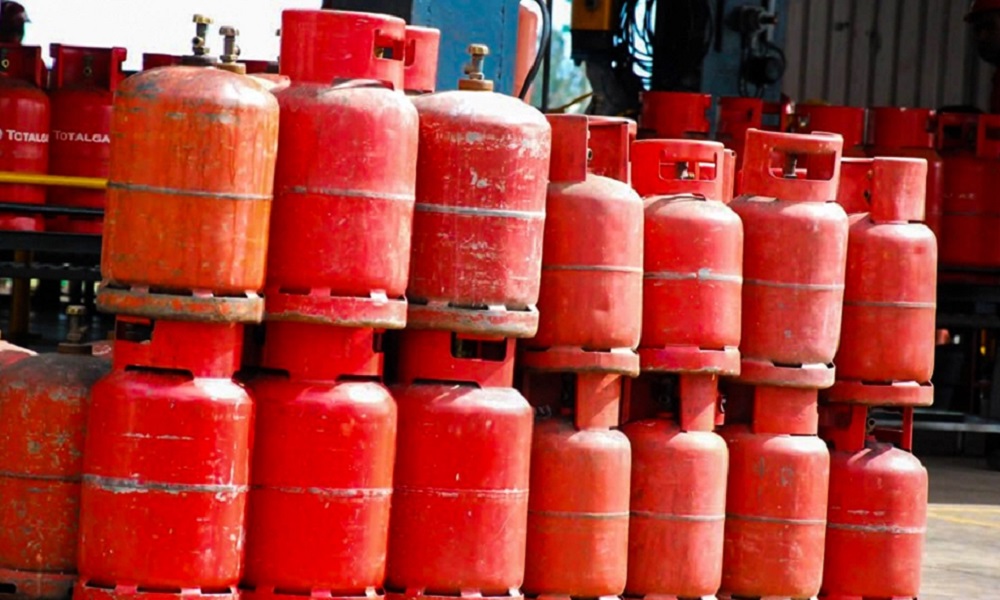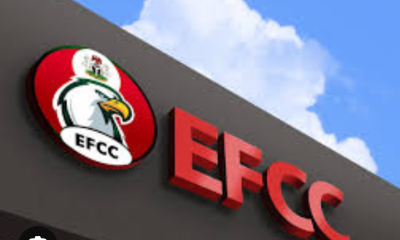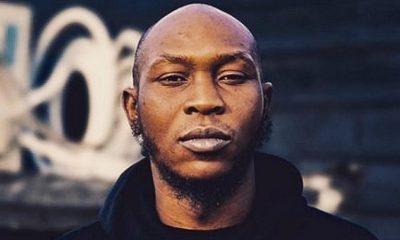Economy
FG plans cooking gas export ban to crash price

The Federal Government is to stop the exportation of Liquefied Petroleum Gas, popularly called cooking gas, in a bid to increase its volume domestically so as to warrant a crash in price.
It stated on Thursday that LPG producers in Nigeria and key stakeholders in the industry had been told to stop exporting the commodity out of Nigeria, following the recent jump in the cost of cooking gas.
Although the volume of LPG consumption in Nigeria depends on the specific timeframe, figures obtained from the Nigerian Midstream Downstream Petroleum Regulatory Authority indicated that in 2022, the total cooking gas consumption across the country was 1.4 million metric tonnes.
Data from the agency put total domestic production during the review period as 600,000MT, while imports accounted for 800,000MT.
In 2021, total consumption was estimated at around 800,000MT, as domestic production was about 300,000MT, while the volume that was imported in that year was put at 500,000MT.
Cooking gas consumption has been increasing significantly, with ambitious targets to reach five million metric tonnes by 2029, as LPG dealers stated that though Nigeria exports the commodity, the country relies heavily on imports to meet domestic demand.
This implies that the Federal Government could stop the export of over 600,000MT of cooking gas based on its drive to crash the price of the commodity locally.
Findings showed that the cost of refilling a 12.5kg cylinder of cooking gas in Abuja, Lagos, Kano and some other states had climbed to about N18,000. It was specifically N17,500 in Abuja on Thursday, a product that sold for less than N9,000 in November last year.
LPG dealers under the aegis of Nigerian Association of Liquefied Petroleum Gas Marketers had predicted mid last year that a 12.5kg cylinder would cost N18,000 going by the incessant hikes in its cost.
To tackle this, the Minister of State for Petroleum Resources (Gas), Ekperikpe Ekpo, constituted a committee in November 2023, headed by the Chief Executive of the Nigerian Midstream and Downstream Petroleum Regulatory Authority, Farouk Ahmed.
But up till today (Thursday), the cost of the commodity has maintained a northward movement, as many LPG users are gradually shifting to the use of charcoal.
But while speaking on the sidelines of the internal stakeholders’ workshop in Abuja on Thursday, Ekpo stated that the Federal Government had asked LPG producers to stop exporting the commodity.
He named some international oil companies including Mobil, Shell and Chevron as producers, stressing that the government was interfacing with them to crash cooking gas prices.
In November 2023, a kilogram of cooking gas was about N700, but the product is now sold at about N1,400/kg. Some operators stated that the cost would increase further if the government fails to intervene.
Ekpo said, “With the issue of gas, you have seen the demonstration of the Federal Government by withdrawing all taxes and levies from the importation of gas related equipment. It is a big incentive.
“On the issue of LPG (cooking gas), we are interacting with the critical sectors to ensure that there is no exportation of LPG. All LPG produced within the country will have to be domesticated. And when this is done, the volume will increase and, of course, the price will automatically crash.
“I’m in contact with the regulator, NMDPRA, we have meetings almost on a daily basis and with the producers of the gas like Mobil, Chevron and Shell. So there is that hope that things will turn around.
“And that is also why we are having this engagement to know exactly what the problems are, so that we can address them once and for all.”
When told that the removal of Value Added Tax on LPG seems not to be reflecting on the cost of the commodity, the minister stated that cooking gas investors were trying to maximise their profit from the sale of the product.
“Excuse me, it is not going to reflect that way. We are dealing with human beings. A policy has been put in place and these people, the investors, want to maximise the profit that they are going to get from it all.
“So at the end of the day we had to come in, which is why you have the regulator. We are interfacing with them to make sure they crash the price. We are meeting with them on a daily basis,” Ekpo stated.
It was reported in December 2023 that the Federal Government had exempted the importation of LPG and its equipment from the payment of customs duty and Value Added Tax, as the move was expected to result in a drop in the cost of cooking gas across the country.
This was disclosed by the Federal Ministry of Finance in a letter (dated November 28, 2023) to the Special Adviser to the President on Energy; Comptroller-General of the Nigeria Customs Service; and the Chairman of the Federal Inland Revenue Service.
The Minister of Finance and Coordinating Minister of the Economy, Wale Edun, signed the letter.
Meanwhile, when asked on Thursday to state when government vehicles would start running on Compressed Natural Gas as always championed by the government, the gas minister stated that he would speak on this later.
“The Presidential Initiative on CNG was set up before the inauguration of the ministers, but I’m interfacing with them. The Federal Government committee is working towards realising the goals. So the moment I get a clearer picture about it I will address you accordingly,” Ekpo stated.
Nigeria has over 208 trillion standard cubic feet of gas reserves and is now viewed as a gas-rich nation.
But most of the country’s gas resources remained untapped due to several reasons such as lack of investments in the sector, the shift from fossil fuels, policy issues, among others.
Ekpo was also asked whether the government would allow operators in the sector to run most of their transactions in naira, as against the popular practice of dollar transactions, and he said the matter would be discussed at the meeting by stakeholders.
“If you were there when the director on gas was presenting what we discussed during the stakeholders meeting on February 6, 2024, it (the concern) was presented, and I will have the views of the implementers and regulators today. Then from there we can take a decisive decision on how to address it,” the minister stated.
Earlier during his speech at the workshop, he said the aim of the event was to reposition the Nigerian gas sector for optimal performance, in line with President Bola Tinubu’s agenda to unlock Nigeria’s abundant gas resources for economic development and poverty eradication.
“This is the second in a series of engagements with stakeholders in the gas sector, the first being the consultative meeting I held with external stakeholders in the gas sector on February 6, 2024 which provided a platform for me to hear from the various associations and groups operating across the gas value chain with a view to understanding the pain points of the industry operators.
“It is my expectation that having heard from the operators in our industry, we as policymakers, regulators and policy implementers will internalise the feedback from our stakeholders and customers to proffer workable solutions to tackle the issues bedevilling our nation’s gas sector.
“With over 208 trillion standard cubic feet in proven gas reserves, Nigeria has no business with energy poverty, and it is imperative for us to rise up as a people to tackle these challenges head-on,” Ekpo stated.
He stated that as part of efforts to ensure a high level of performance and accountability within the Federal Government, the President, through the office of the Special Adviser on Policy and Coordination, had released the Presidential Priorities and Ministerial Deliverables for 2023 – 2027 to create a performance tracking mechanism for the Minister of Petroleum Resources and relevant agencies.
“The theme for this workshop – ‘Harnessing Nigeria’s Proven Gas Reserves for Economic Growth and Development,’ is very apt and provides a platform for us to galvanise action and take the necessary steps to release this nation’s abundant gas reserves to accelerate our industrialisation and develop the economy for the good of our teeming population,” Ekpo stated.
The Chief Executives of the Nigerian Midstream and Downstream Petroleum Regulatory Authority, Ahmed Farouk, and the Nigerian Upstream Petroleum Petroleum Regulatory Commission, Gbenga Komolafe, were in attendance at the internal stakeholders’ workshop on Thursday.
Representatives from other agencies under the petroleum ministry such as the Nigerian National Petroleum Company Limited, Petroleum Technology Development Fund, directors from the Federal Ministry of Petroleum Resources, among others, were also in attendance.
Economy
75.5% of rural Nigerians now live below poverty line — World Bank

The World Bank has disclosed that a staggering 75.5 per cent of rural Nigerians are now living below the poverty line, reflecting deepening hardship in the country’s hinterlands.
This was revealed in the Bank’s April 2025 Poverty and Equity Brief for Nigeria, which paints a grim picture of worsening economic hardship, widening inequality, and persistent underdevelopment across much of the nation.
While poverty is widespread among urban populations, the report emphasised that the situation is significantly worse in rural areas, where economic stagnation, high inflation, and insecurity have exacerbated living conditions.
“Based on the most recent official household survey data from Nigeria’s National Bureau of Statistics, 30.9 per cent of Nigerians lived below the international extreme poverty line of $2.15 per person per day in 2018/19 before the COVID-19 pandemic,” the report stated.
The report also highlighted Nigeria’s enduring regional disparities. “Nigeria remains spatially unequal. The poverty rate in northern geopolitical zones was 46.5 per cent in 2018/19, compared with 13.5 per cent for southern ones. Inequality measured by the Gini index was estimated at 35.1 in 2018/19.
“Nigeria’s Prosperity Gap — the average factor by which individuals’ incomes must be multiplied to attain a prosperity standard of $25 per day for all — is estimated at 10.2, higher than most peers.”
Despite successive policy interventions, these figures underscore a persistent economic divide across the country.
The report’s demographic analysis found that children aged 0 to 14 years had a poverty rate of 72.5 per cent, reflecting the scale of deprivation among the youngest segment of the population.
Gender disparities were also observed, with 63.9 per cent of females and 63.1 per cent of males classified as poor under the $3.65 per day lower-middle-income threshold.
Education emerged as a significant determinant of poverty, with Nigerians lacking formal education experiencing a poverty rate of 79.5 per cent. This contrasts with 61.9 per cent for those with primary education and 50.0 per cent for secondary school graduates. Only 25.4 per cent of those with tertiary education were considered poor.
The report also drew attention to multidimensional poverty indicators, which further reflect widespread deprivation.
According to the World Bank, about 30.9 per cent of Nigerians live on less than $2.15 daily, 32.6 per cent lack access to limited-standard drinking water, 45.1 per cent do not have limited-standard sanitation, and 39.4 per cent have no electricity.
Education access remains a challenge, with 17.6 per cent of adults yet to complete primary education, and 9.0 per cent of households reporting at least one school-aged child not enrolled in school.
The report noted that even before the COVID-19 pandemic, efforts to reduce extreme poverty had largely stalled.
“Before COVID-19, extreme poverty reduction had almost stagnated, dropping by only half a percentage point annually since 2010. Living standards of the urban poor are hardly improving, and jobs that would allow households to escape poverty are lacking,” the report read.
Although the World Bank acknowledged recent economic reforms aimed at stabilising Nigeria’s macroeconomic outlook, it warned that persistently high inflation continues to undermine household purchasing power, particularly in urban areas where incomes have not kept pace with rising costs.
In light of the worsening situation, the Bank called for urgent policy action to shield vulnerable groups from inflationary shocks and to drive job creation through more productive economic activities.
Economy
Naira Records Marginal Decline Against Dollar at Official Market

The Nigerian naira experienced a mild drop in value on Friday, closing at ₦1,602.18 per dollar in the official foreign exchange market, based on figures released by the Central Bank of Nigeria (CBN).
This marks a decrease of ₦5.49 from the rate of ₦1,596.69 recorded on April 30, the last trading day before the May 1 Workers’ Day holiday—indicating a depreciation of approximately 0.34%.
Earlier in the week, from Monday to Wednesday, the naira remained relatively stable, exchanging at ₦1,599.95, ₦1,599.71, and ₦1,596.69 respectively.
Although the local currency showed some consistency mid-week, it wrapped up the week with a loss, following a sligh dip of 0.02% at the beginning of the week
Economy
Black Market Dollar hits N1,610 Amid Economic quagmire

What is the Dollar to Naira Exchange Rate in the Black Market (Also Known as the Parallel Market or Aboki FX)?
Below is the black market exchange rate for the U.S. dollar to the Nigerian naira as of Thursday, May 1, 2025. These are the typical rates at which you can exchange dollars for naira:
Dollar to Naira Black Market Exchange Rate (May 1, 2025):
At the Lagos Parallel Market, also referred to as the black market, Bureau De Change (BDC) operators are buying dollars at ₦1,602 and selling at ₦1,610, according to market sources.
Please note: The Central Bank of Nigeria (CBN) does not recognize or endorse transactions conducted on the parallel market. The CBN advises individuals and businesses seeking foreign exchange to use official banking channels.
-

 News7 hours ago
News7 hours agoWhy ‘VeryDarkMan was arrested – EFCC
-

 News18 hours ago
News18 hours agoMassive turnout as Bishop David Abioye holds first service in new church + Video
-

 Economy17 hours ago
Economy17 hours ago75.5% of rural Nigerians now live below poverty line — World Bank
-

 Entertainment6 hours ago
Entertainment6 hours agoHow I narrowly escaped death in U.S hotel room – Seun Kuti
-

 Education9 hours ago
Education9 hours agoOver 1.5m candidates score less than 200 in 2025 – UTME
-

 News18 hours ago
News18 hours agoHow US-Based Yoruba Monarch Died After Brutal Assault In Oyo Palace, Allegedly Ordered By Alaafin Amid Supremacy Row With Ooni Of Ife
-

 News8 hours ago
News8 hours ago‘S3x is good, I enjoy it,’ Bishop Adejumo tells wives
-

 News17 hours ago
News17 hours ago‘Cabals’ still fighting against our refinery — Dangote






